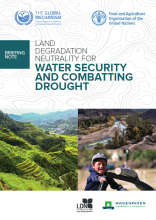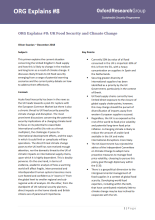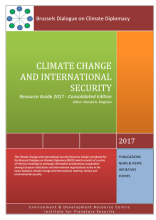Land Library
Welcome to the Land Portal Library. Explore our vast collection of open-access resources (over 74,000) including reports, journal articles, research papers, peer-reviewed publications, legal documents, videos and much more.
/ library resources
Showing items 1 through 9 of 305.As water is the most disruptive element in the ongoing climate crisis, how land is managed plays a major role in taming this disruption. This publication shows that avoiding, reducing and reversing land degradation can have positive long-term gains in water security.
More than 113 million people across 53 countries experienced acute hunger requiring urgent food, nutrition and livelihoods assistance (IPC/CH Phase 3 or above) in 2018.
Land is already under growing human pressure and climate change is adding to these pressures.
This primer explains the current situation concerning the United Kingdom’s food supply and how this is likely to change in the medium and long term as a result of climate change.
This year's 2nd edition of the European Security and Defence Union journal is looking into climate change as global security and humanitarian challenge.
This new report by the PBL Netherlands Environmental Assessment Agency in collaboration with the Clingendael Institute and other Dutch research institutes points to pressure on security and migration arising from too litt
This Climate-Fragility profile is envisaged as a first component of a Climate-Fragility Risk Assessment process. It summarizes the key challenges the Lake Chad region is experiencing as a consequence of the interplay between climate change and fragility.
The Climate Change and International Security Resource Guide is produced for the Brussels Dialogue on Climate Diplomacy (BDCD) which consists of a series of informal meetings to exchange information and promote cooperation among European institutions and international organisations active in the
Conflict and climate change have pushed 124 million people in 51 countries into acute food security, a situation when the inability to consume adequate food represents an immediate danger to people’s lives and livelihoods.








